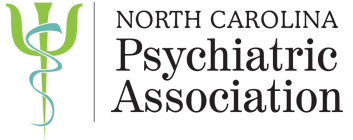- Home
- About
- Foundation
- Advocacy
- Conferences & Events
- Jobs & Classified Ads
- Contact Us
Position on Cannabisapproved by NCPA Executive Council January 30, 2022Decriminalization of Cannabis No Evidence Supporting Use of Cannabis to Treat Psychiatric Illnesses There is evidence that cannabis will worsen bipolar disorder exacerbating depression and hastening the emergence of psychotic episodes. This has been shown to be particularly troubling in adolescence. We along with the American Psychiatric Association recognize there is inadequate information for the effects of non-pharmaceutical cannabinoids use in treating psychiatric conditions to establish it as such. We recognize some of this may be the result of the difficulties the federal government has put in place surrounding the ability to establish clinical research on the use of cannabinoids in the treatment of psychiatric conditions. However, there is now adequate evidence that establishing the legality of “medical marijuana” has not resulted in significant improvement in psychiatric illness in states where it has been established. Impact on Adolescents We are concerned the poor evidence for medicalization of cannabis may result in a reduction in perceived risk of use, barriers to access, both potentially resulting in the increased incidence of associated cannabis use disorders. Therefore, we strongly recommend, in the event medical cannabis were to be made legal in North Carolina, significant safeguards be put in place helping to prevent initiation and safeguard adolescents from greater availability of this drug. Evidence of Health Effects Are Modest Importance of THC/CBD Concentration/Dosing, Provider/Patient Education NCPA Recommendations if Cannabis Legislation Is Passed 1) Given the need for control over the quality and the availability of this product, we strongly recommend the State of North Carolina maintain control over the retail outlets for the sale of cannabis. This would allow for store personnel to be educated and the maintenance of their education be monitored, including their understanding of the importance of controlling the sales and the particularities of the products sold. 2) We also recommend these outlets input this medical information into the NCCSRC registry. This would include the dosing recommendations, quantity, and percentage of THC/CBD sold, allowing the patient’s health care providers registered with the NCCSRC to have ready access to this information housed in the same profile in which they see other controlled substance medication information associated with their patient. Those submitting this information at the point of distribution would not have access to other medical information associated with the patient. 3) Tax revenues made available to the State of North Carolina through the sale of these products should be in part used for treatment, research, and collection of population data, including public health impact in general and, most importantly, the impact on adolescent use initiation. In Summary 2) NCPA does not see general health or psychiatric benefits established in the medical literature identifying cannabis as a therapeutic substance important enough to add to the current pharmacopoeia. 3) Cannabis disorder is a growing problem in North Carolina and there is real concern that establishing cannabis as a medical therapy may, as it has in other states, result in the public’s and in particular adolescents’ reduction in their understanding the potential for harm associated with the use of cannabis, thus increasing its use.
|
